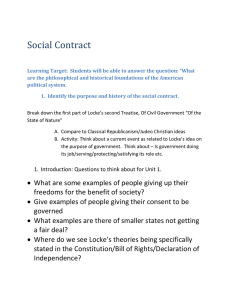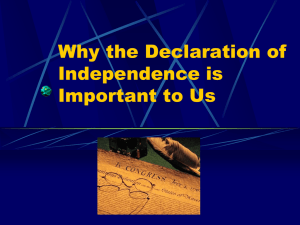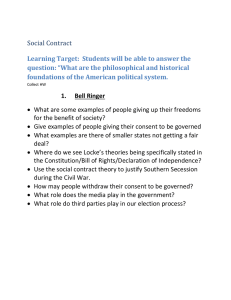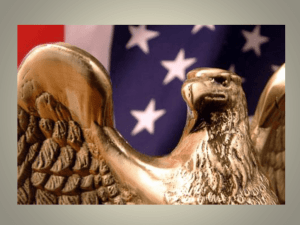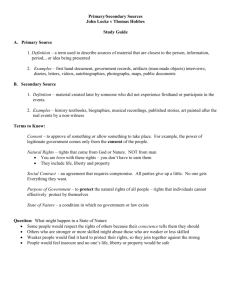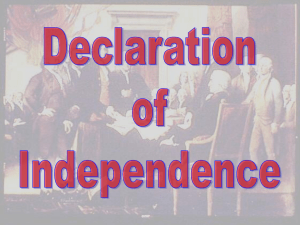How Did Jefferson use the Ideas of Locke Resource
advertisement
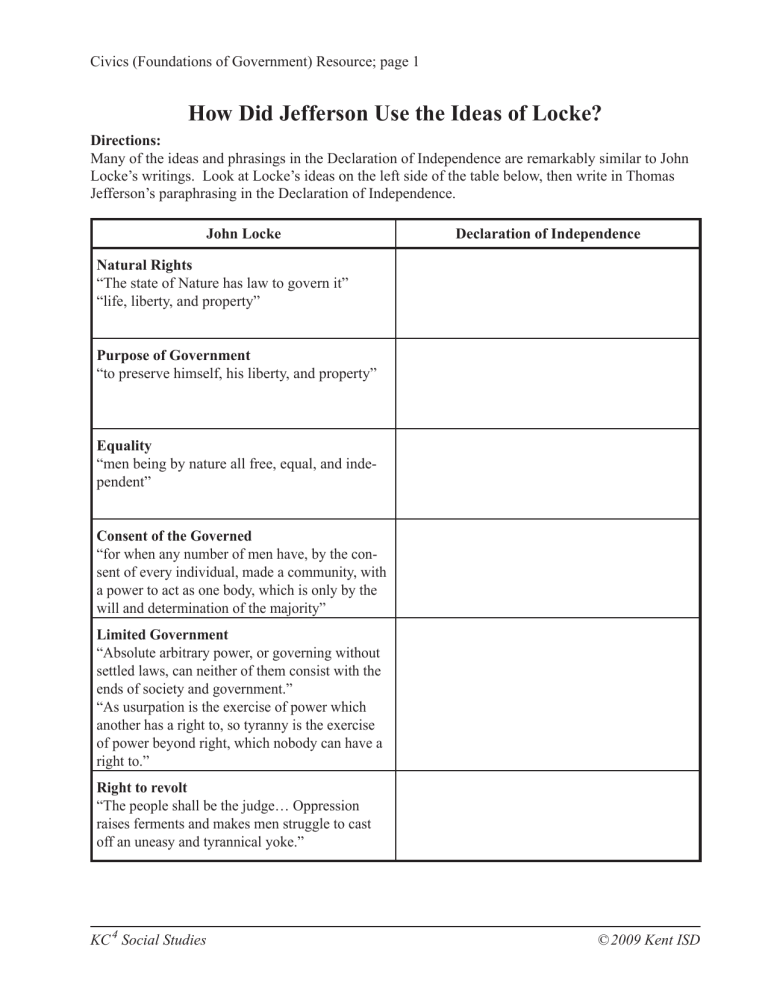
Civics (Foundations of Government) Resource; page 1 How Did Jefferson Use the Ideas of Locke? Directions: Many of the ideas and phrasings in the Declaration of Independence are remarkably similar to John Locke’s writings. Look at Locke’s ideas on the left side of the table below, then write in Thomas Jefferson’s paraphrasing in the Declaration of Independence. John Locke Declaration of Independence Natural Rights “The state of Nature has law to govern it” “life, liberty, and property” Purpose of Government “to preserve himself, his liberty, and property” Equality “men being by nature all free, equal, and independent” Consent of the Governed “for when any number of men have, by the consent of every individual, made a community, with a power to act as one body, which is only by the will and determination of the majority” Limited Government “Absolute arbitrary power, or governing without settled laws, can neither of them consist with the ends of society and government.” “As usurpation is the exercise of power which another has a right to, so tyranny is the exercise of power beyond right, which nobody can have a right to.” Right to revolt “The people shall be the judge… Oppression raises ferments and makes men struggle to cast off an uneasy and tyrannical yoke.” KC 4 Social Studies © 2009 Kent ISD Civics (Foundations of Government) Resource; page 2 How Did Jefferson Use the Ideas of Locke? (Answer Key) John Locke Declaration of Independence Natural Rights “The state of Nature has law to govern it” “life, liberty, and property” “Law of Nature and Nature’s God” “life, liberty, and the pursuit of happiness” Purpose of Government “to preserve himself, his liberty, and property” “to secure these rights” Equality “men being by nature all free, equal, and independent” “all men are created equal” Consent of the Governed “for when any number of men have, by the consent of every individual, made a community, with a power to act as one body, which is only by the will and determination of the majority” “Governments are instituted among men, deriving their just powers from the consent of the governed.” Limited Government “Absolute arbitrary power, or governing without settled laws, can neither of them consist with the ends of society and government.” “As usurpation is the exercise of power which another has a right to, so tyranny is the exercise of power beyond right, which nobody can have a right to.” “The history of the present King of Great Britain is a history of repeated injuries and usurpations.” Right to revolt “The people shall be the judge… Oppression raises ferments and makes men struggle to cast off an uneasy and tyrannical yoke.” “Prudence, indeed, will dictate that Governments long established should not be changed for light and transient causes… But when a long train of abuses and usurpations, pursuing invariably the same Objects evinces a design to reduce them under absolute Despotism, it is their right, it is their duty, to throw off such Government.” KC 4 Social Studies © 2009 Kent ISD

